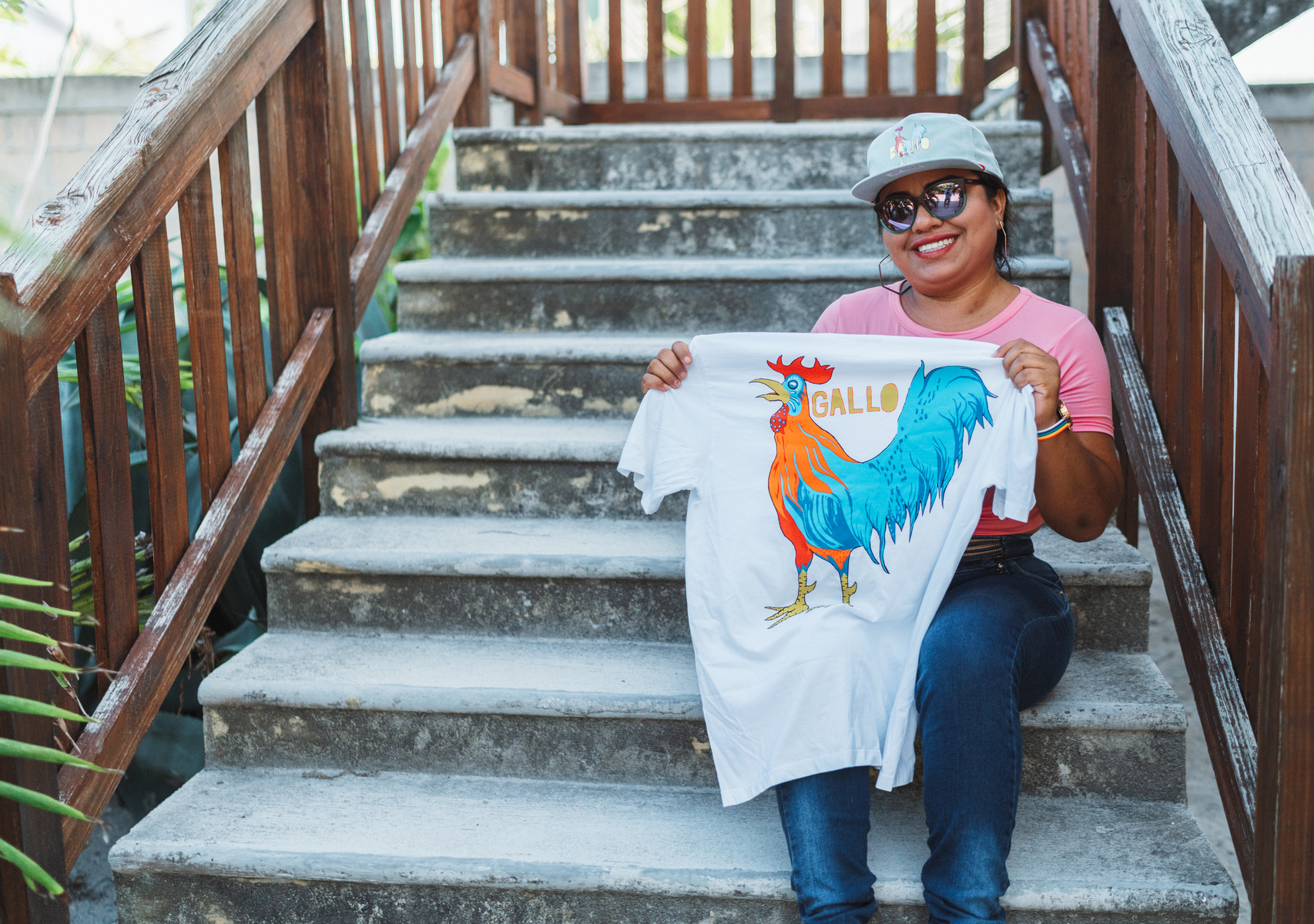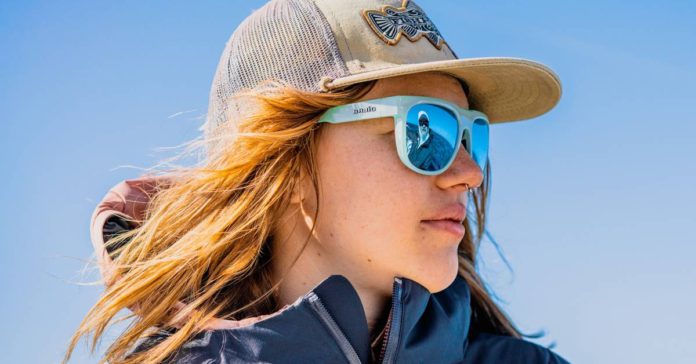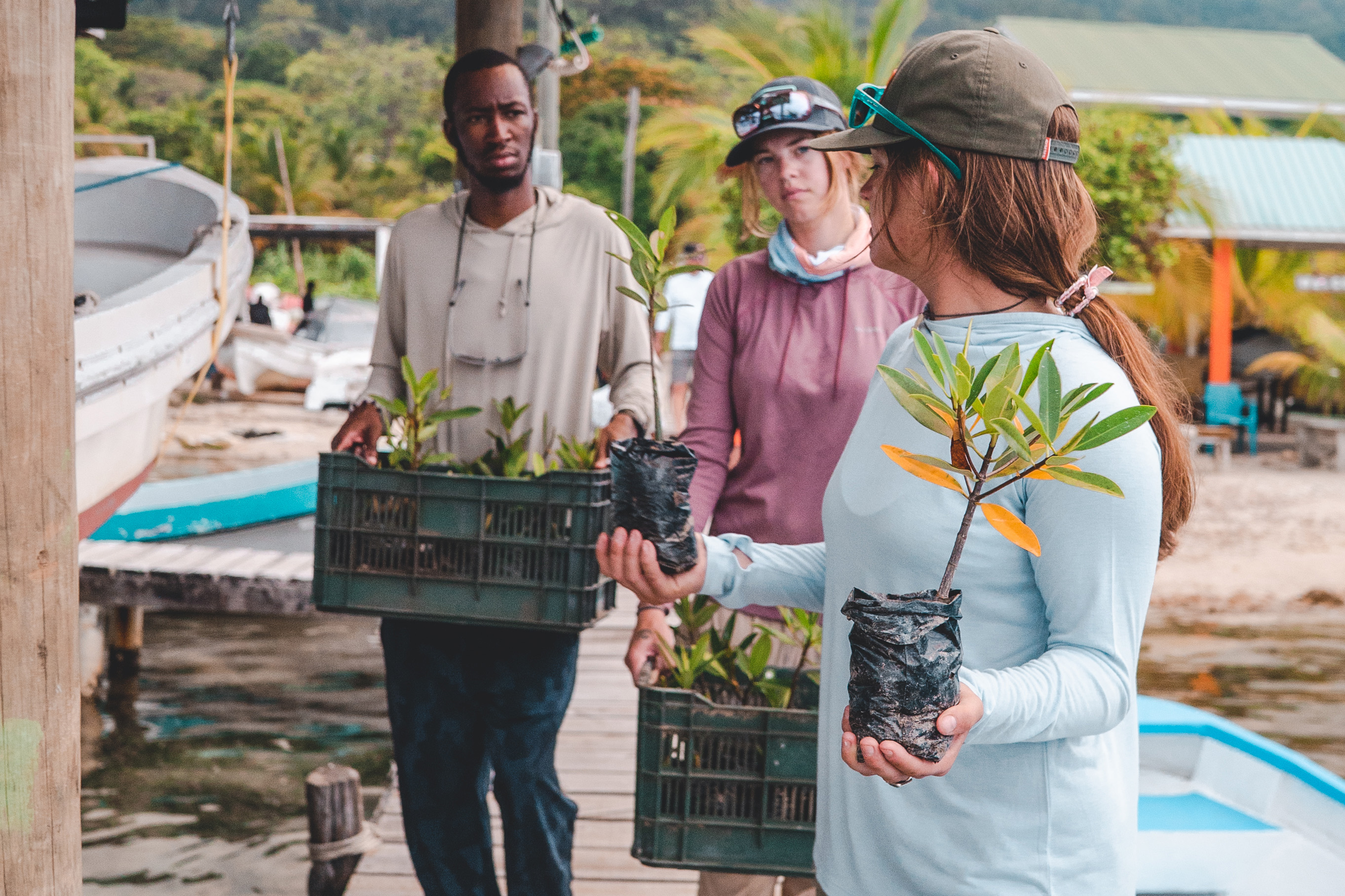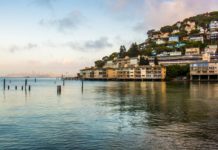Bajío is making waves in the sunglasses industry. And it refuses to leave conservation efforts behind.
Al Perkinson is not your typical CEO. He isn’t sitting at a desk just pretending to be a fish bum, and he certainly isn’t just some suit putting out the illusion that his company cares about the planet. Al is the real deal.
Before founding Bajío, Perkinson was embedded in just about every facet of the fishing industry. As the owner of a consulting firm, he served clients such as Orvis, Trout Unlimited, Guy Harvey, and Pure Fishing. He held senior management roles at both Huk Apparel and Simms Fishing Products.
For 12 years, his nameplate at Costa Sunglasses read CMO.
Perkinson’s personal accomplishments in the fishing and conservation world are even more impressive. He’s a board member for both Trout Unlimited and Bonefish & Tarpon Trust. He founded Indifly, a nonprofit that works to strengthen indigenous communities through fly fishing.
Outdoor Life magazine named Perkinson as one of the 25 most influential people in conservation. Bonefish & Tarpon Trust honored him as Sportsman of the Year. And Fly Fisherman magazine recognized him as Angler of the Year … and that’s just the beginning.
A Company Focused on ‘Great Fishing Glasses’

I think Perkinson summed it up best when asked why he decided to start Bajío Sunglasses after such a long, successful career in the fishing industry.
“Well, Bajío is a cause-based company that just happens to make really great fishing glasses.”
Al wanted to build a business that not only produced a high-quality product that improved the users’ experience but also protected and preserved the flats for which the company is named. His inspiration started with brands like Patagonia.
Sustainability is at the forefront of everything the team at Bajío does, and they do it well. From its products to its packaging, all the way down to its shipping methods, Bajío works to ensure that it produces the most sustainable glasses it can. From its inception, Bajío has been 100% carbon neutral.
Bajío’s cases are made from sustainably harvested cactus leather. All paper used is 100% recycled. And the frames of the sunglasses are plant-based nylon. At every turn, Bajío’s team ensures that they are running an environmentally ethical business.
The Sunglasses
All the sustainability in the world doesn’t matter if the product doesn’t perform. When it comes to sunglasses, particularly those marketed for fishermen, it’s all about the lens.
This is where Bajío really stands out. It has taken a new approach to light management. Other companies tend to focus on reducing yellow light. Bajío’s proprietary LAPIS technology reduces blue light.
What this does is improve lens clarity — and reduce blur, glare, and haze — all while enhancing color and protecting your eyes from harmful rays. Blocking 95% of blue light up to 445 nm, Bajío sunglasses block more blue light than any other brand on the market.
With specialized lenses organized by function, Bajío takes the guesswork out of deciding which lens will fit your specific fishing need.
My Experience: The Paraiso and Gates Glasses
I own both the Paraiso (below left, $199) with Blue Mirror Lenses and the Gates (below right, $199) with Rose Mirror lenses. All of Bajío’s sunglasses are customizable by both lens type and fame color, which is a really nice feature. The shades I own are on opposite ends of the spectrum. The rose lenses are on the lighter side, and the blue mirror is the darkest lens Bajío offers.
I’ll admit, the first thing I noticed about both pairs is the clarity. There’s a crispness that comes along with cutting blue light, which I personally really like. With both lenses, I did notice that my surroundings took on a yellowish tinge.
Obviously, cutting blue light would explain that. It hasn’t bothered me, but it’s definitely worth noting.
The frames feel solid and without knowing they are primarily plant-based, I would have assumed they were a standard nylon material. They’re lightweight without feeling cheap.
River Stuff, Durability, Price Point
As a fly fisherman, I can’t tell you how many pairs of shades I’ve lost to the depths of the river. I ran my own science experiment, and both pairs sunk to the depths of my kitchen sink. A lanyard is an obvious and easy fix to keep your shades from descending to Davy Jones’ locker, but it would be awesome to see more fishing shades that float.
Bajío offers both glass and polycarbonate lenses. I currently only have the plastic variety and can’t speak to the durability just yet. My sunglasses typically end up looking like they’ve been put through a garbage disposal by the end of a single season. It’ll be interesting to see how these hold up.
Bajío offers repair services, but the cost is a bit steep. New glass lenses will run you $95, and plastic lenses are $65.
The price point of around $200 is on the high end of what most people are wanting to pay for a pair of fishing glasses. They fall just a bit under the average price for a pair of sunglasses from the more widely known brands in the same category.

The Conservation Work
The conservation Bajío has planned is certainly impressive. The company’s boots-on-the-ground conservation crew is called the Bajío Odyssey, and the Odyssey has big plans.
Over a 5-year span, the Odyssey will embark on expeditions around the world, focusing on mapping the saltwater flats and enriching the communities that call those places home.
Projects include coral reef restoration, ocean trash cleanup, mangrove tree planting, creating a fishing trail system, and more. The projects are ever-evolving, as they identify issues needing attention through their travels.
Project Rooster is a prime example of a location-based need they were made aware of upon arrival. During an expedition to Xcalak, Mexico, the crew learned of a disturbing trash problem. The cause seemed to be a combination of ocean currents and illegal dumping.
They decided to hire the daughter of Xcalak’s first fishing guide to run a team of 10-15 locals and clean up the beaches. The plastic trash heads straight for the local recycling facility.
In order to help fund this ongoing project, they’ve adopted the unofficial local mascot from a mural painted in the heart of the town. The purchase of a Bajío Rooster hat or shirt results in a $10 donation directly to Project Rooster.

There are far more projects in the works. You can learn more about what the Bajío Odyssey crew is doing and how you can help by visiting the website and checking out their YouTube Channel.
Final Thoughts
So far, I’ll admit that I like the feel and function of the product. I’ve yet to test the durability, but I’m hopeful.
The cost might be on the steep side, but the reality is that you aren’t just buying sunglasses; you’re investing in a sustainably sourced product. On top of that, there are entire conservation programs being funded with that purchase price.
It’ll be interesting to watch this company and see where it fits in the big sunglasses industry. Or, perhaps Bajío is just setting out on a course all on its own.
Either way, it’s a company that’s onto something good.
Credit: Source link


































